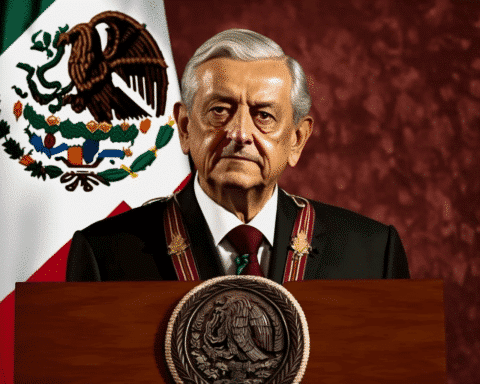The State of Nuevo León in northern Mexico passed marriage equality with a favourable vote of 22 to 10, more than four years after the Supreme Court of Justice of the Nation (SCJN) issued an order to legislate in favour of the rights of the LGBT+ community.
“No deputy presented any reservation, so the initiative to reform various articles of the Civil Code for the state of Nuevo León has been approved in general and in particular,” the state Congress announced.
The approved reforms in Article 140 specify that only men and women who have reached eighteen years can celebrate nuptials. Article 147 defines marriage as “the legitimate union of two people to remain faithful and to create a permanent community of life and mutual assistance” among them.
According to Article 148, “to contract marriage, men and women need to have reached eighteen years,” while Article 291 Bis states that “cohabitation is the union of two people, who live as a married couple for more than two years without being united in marriage.”
The reform initiative, first presented on February 20, 2019, was initially left undetermined due to the omission of the Nuevo León State Congress, which refused to carry out the reforms to modify the articles related to the institution of marriage, declared unconstitutional by the SCJN.
Later, the Official Gazette of the Federation published the sentence dictated by the SCJN, declaring unconstitutional two articles of the Nuevo León Civil Code that discriminated against same-sex couples they did not allow to marry.
The reform initiative was presented by lawmakers Waldo Fernández of the National Regeneration Movement (Morena) and Jessica Martínez of the Institutional Revolutionary Party (PRI), who celebrated the approval of marriage equality.
“The LGBT community often faces rejection when we present initiatives, but every once in a while, we receive a ‘yes,’ and that ‘yes’ changes our world and lives. It is a ‘yes’ that brings us closer to securing our dignity as people in a historically despised society,” Martínez said after the ruling.
This day is celebrated with “joy and pride,” the politician and activist declared, marking a historic moment that signifies a significant step towards equality and non-discrimination of the LGBTQ+ community in Nuevo León.
She also acknowledged the courage and tireless struggle of the LGBTQ+ community and all those who have raised their voices in defence of love and diversity. “Thanks to your perseverance, we can now celebrate the freedom to love and form families regardless of gender,” she added.
The legislative premises fluttered flags representing the LGBT+ community. The marriage equality bill passed with the required 22 votes, even with the endorsement of PAN lawmakers, in a divided vote from legislative factions.
After four years after the SCJN’s mandate, the civil code articles were finally amended.
It took over 12 years for same-sex marriage to become legal nationwide. Mexico City was the first to enforce it on March 4, 2010, followed by Tamaulipas, which approved it with 23 votes in favour, 12 against, and two abstentions on October 26, 2022. Nuevo León joined them today, marking nationwide legalization.
Following the approval in Mexico City, a trend started in other states: Quintana Roo legalized it in 2012; Coahuila in 2014; Chihuahua and Nayarit in 2015; followed by Campeche, Michoacán, Morelos, and Colima in 2016; Chiapas in 2017; San Luis Potosí, Hidalgo, Baja California Sur, and Oaxaca in 2019; Puebla and Tlaxcala in 2020; Sinaloa, Baja California, Yucatán, Querétaro, Sonora, Zacatecas, and Guanajuato in 2021; Jalisco, Veracruz, Durango, State of Mexico, Tabasco, and Guerrero in 2022.
According to the National Institute of Statistics and Geography (INEGI), 58% of the population over 15 years old are in a union: 31% are single, and 10% are separated, divorced, or widowed.
The number of heterosexual marriages has decreased in the last 12 years, while the number of same-sex marriages has increased, though statistically, it remains a minority.
The journey to marriage equality in Mexico, marked by political, social, and legal battles, has finally culminated with the state of Nuevo León’s endorsement. This milestone event represents the triumph of love and diversity and the strength and perseverance of the LGBTQ+ community and their allies. This historic moment signifies a promising step towards a future where all citizens can celebrate their freedom to love and form families, irrespective of gender.




